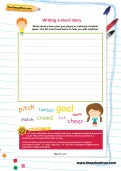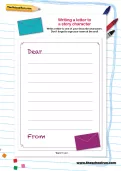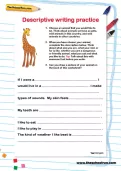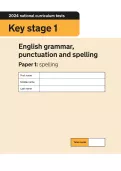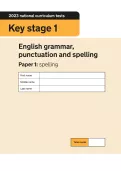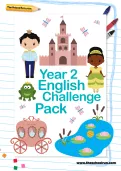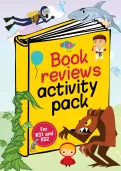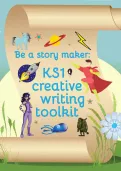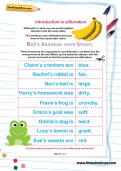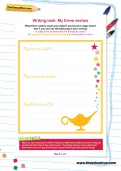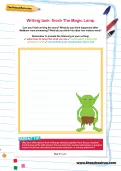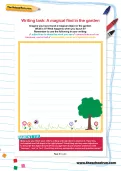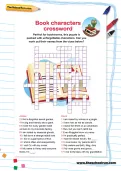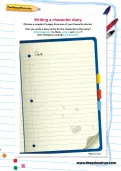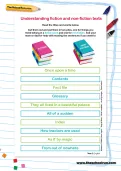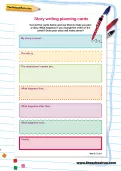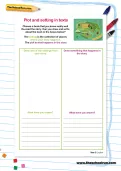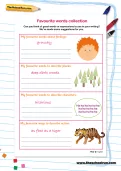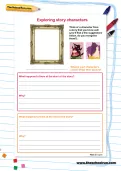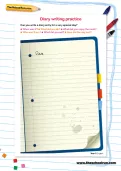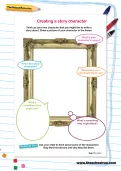Help your child prepare for the optional English KS1 SATs, taken at the end of Year 2, with some at-home practice. These complete Y2 SATs past papers from 2024 are the official Department for Education papers used in schools.
or
Register to add to your saved resources
Help your child prepare for the English KS1 SATs, taken at the end of Year 2, with some at-home practice. These complete Y2 SATs past papers from 2023 are the official Department for Education papers used in schools.
or
Register to add to your saved resources
Challenging reading comprehensions and activities for Year 2 readers and writers, designed to stretch your child and offer them the opportunity to explore their year-group topics in greater depth.
or
Register to add to your saved resources
Already a subscriber? to view this content.
Help your child explore books and language with TheSchoolRun's Book reviews activity pack, a huge collection of reading comprehension and creative writing resources for Year 1 to Year 6.
or
Register to add to your saved resources
Already a subscriber? to view this content.
Help your child harness their imagination and share their stories in writing with our KS1 creative writing learning pack. Bursting with fill-in prompt sheets and inspiring ideas to get even the most reluctant writer started, it's the perfect way to encourage children aged 5 to 7 to put pen to paper.
or
Register to add to your saved resources
Already a subscriber? to view this content.
Alliteration is when we use words together that start with the same letter. These sentences are supposed to use alliteration, but they have the wrong words at the end! Match up the sentence starters with the
correct end word so that the sentences are alliterative.
or
Register to add to your saved resources
Already a subscriber? to view this content.
What three wishes would you make if you found a magic lamp? Write them down here.
or
Register to add to your saved resources
Already a subscriber? to view this content.
Can you finish writing the story about the magic lamp? What do you think happened after Matthew went swimming? What do you think his other two wishes were? You'll need to do this worksheet first: http://www.theschoolrun.com/reading-comprehension-the-magic-lamp
or
Register to add to your saved resources
Already a subscriber? to view this content.
Imagine you have found a magical object in the garden. What is it? What happens when you touch it? Now write about what you've found – but don't forget to use adjectives, connectives, exclamation marks and question marks!
or
Register to add to your saved resources
Already a subscriber? to view this content.
Write about a time when you played or watched a football game. Use the word bank below to help you with spellings.
or
Register to add to your saved resources
Classic characters are unforgettable, whether they're falling down unusual rabbit holes, prowling through the jungle or breaking their slates over unfortunate classmates' heads. How many famous characters from children's literature can you identify in this crossword puzzle?
or
Register to add to your saved resources
Use this letter template to write a letter to one of your favourite characters. Don’t forget to sign your name at the end!
or
Register to add to your saved resources
Choose a couple of pages from one of your favourite stories. Can you write a diary entry for the character in the story? What happened to them, where and when? Don’t forget to include how they felt.
or
Register to add to your saved resources
Already a subscriber? to view this content.
Read these titles and words. Cut them out and put them in two piles, one for things you think belong in a fiction book and one for non-fiction. Ask your mum or dad for help with reading the sentences if you need to.
or
Register to add to your saved resources
Already a subscriber? to view this content.
Cut out the cards below and use them to help you plan a story. What happens if you change the order of the cards? Does your story still make sense?
or
Register to add to your saved resources
Already a subscriber? to view this content.
Choose a book that you know really well. Re-read the story. Can you draw and write about the book in the boxes? The setting is the collection of places where your story happens. The plot is what happens in the story. Draw one of the settings from your story and something that happens in your story.
or
Register to add to your saved resources
Already a subscriber? to view this content.
Can you think of great words or expressions to use in your writing? We’ve made some suggestions for you. What are your favourite words about your feelings? What are your favourite words to describe places? What about describing characters or actions?
or
Register to add to your saved resources
Already a subscriber? to view this content.
Think of a character from a story that you know well (you’ll find a few suggestions here, do you recognise them?). What is your character’s name? Draw their picture! What happens to them at the start of the story? What happens to them at the end of the story?
or
Register to add to your saved resources
Already a subscriber? to view this content.
Can you write a diary entry for a very special day? When was it? What did you do? What did you enjoy the most? Who was there? What did you eat? How did the day end?
or
Register to add to your saved resources
Already a subscriber? to view this content.
Think up your own character that you might like to write a story about. Draw a picture of your character in the frame, answering questions like: How old is your character?; What is your character's name?; What's something they might say? If it helps, think about some of the characters you like from stories and why you like them.
or
Register to add to your saved resources
Already a subscriber? to view this content.
